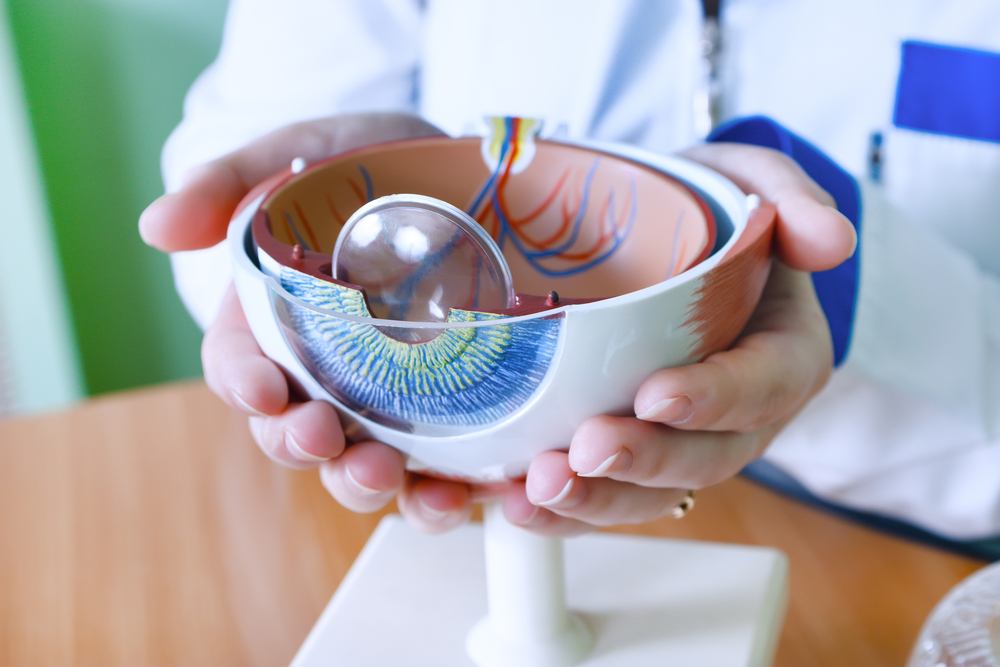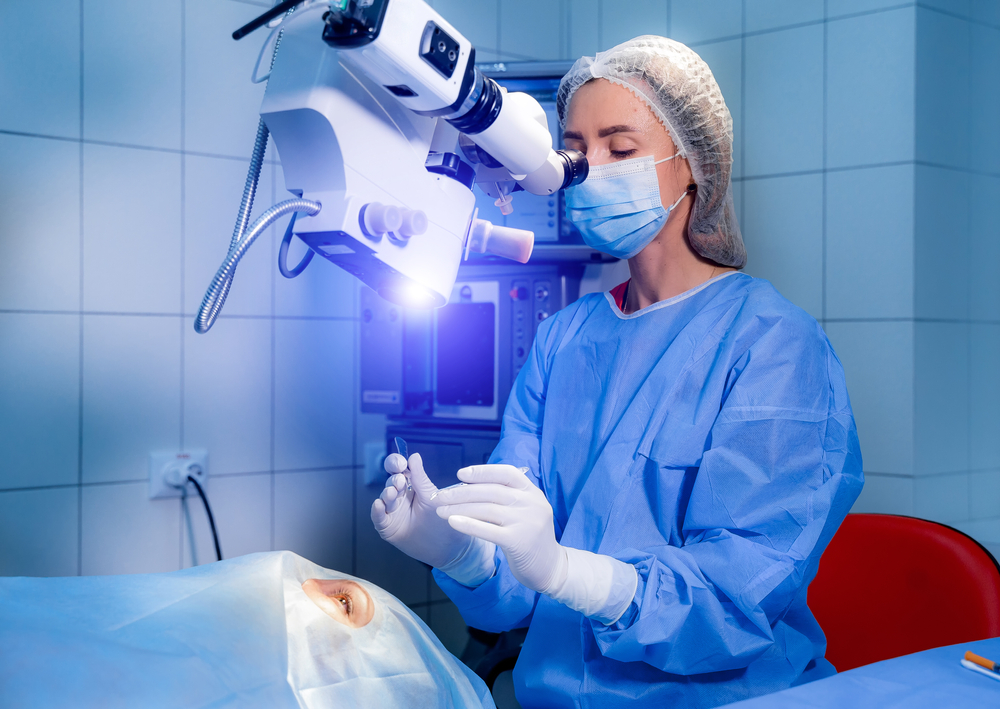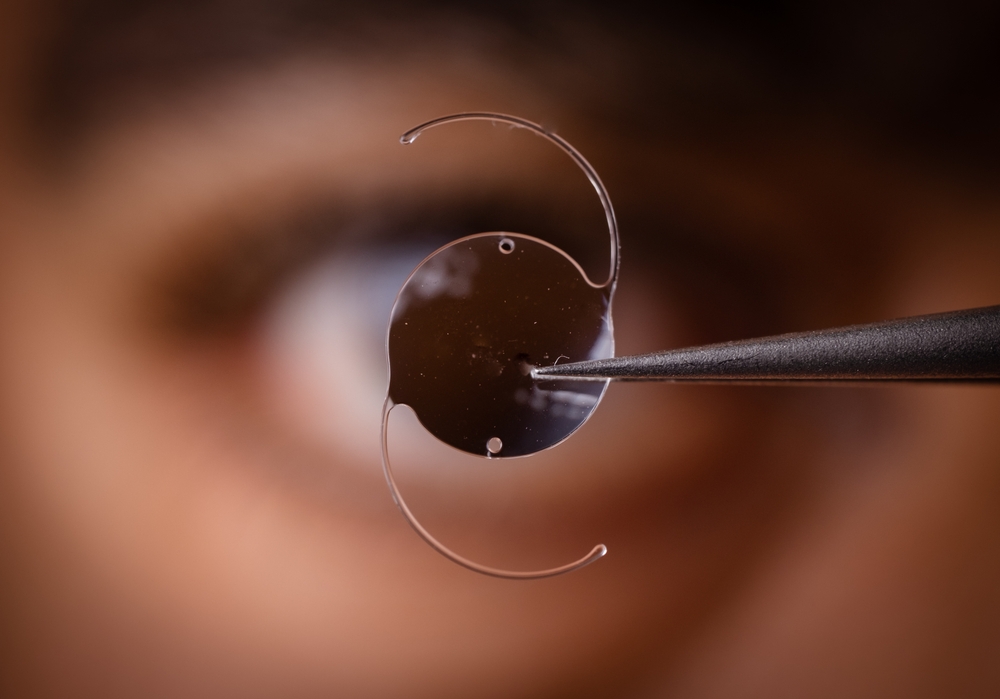What Happens During Cataract Surgery?
Cataracts are a common eye condition that often occurs due to natural changes that happen in the eye when you age. Cataracts form inside the eye’s natural lens.
While you may be able to function normally with cataracts at first, they often worsen. Eventually, glasses and contacts won’t be able to provide clear vision.
Cataract surgery is the only way to treat cataracts and restore clear vision. But, what exactly is cataract surgery, and what happens during this treatment?
Keep reading to learn more about cataract surgery, including what happens during the procedure!
Why Do Cataracts Develop?

Your eyes have a lens that is essential for helping you see clearly. These lenses are made of proteins
and are clear and flexible.
Healthy lenses don’t have any spots or cloudy areas. As you age, the proteins in the lenses begin to wear down, creating cataracts.
Most cataracts result from the natural aging process and can cause blurry vision and impact your quality of life. However, cataracts can also develop because of injuries, diabetes, medications, and other underlying illnesses or certain health conditions.
What Are The Signs Of Cataracts?
At first, your vision might not change much when you have cataracts. They tend to develop gradually.
Some individuals might not have very many symptoms, while others might notice negative impacts right away. The most common symptoms of cataracts include:
- Blurred vision
- Trouble seeing at night or in dim lighting
- Double vision in one eye
- Haloes or glares around lights
- Light sensitivity
What Is Cataract Surgery?
As symptoms worsen, glasses and contacts may not be sufficient to restore your vision. Cataracts can significantly impact your life, making it unsafe to drive and difficult to perform daily tasks.
Cataract surgery is the only permanent treatment option for cataracts. During this treatment, your cataract surgeon will remove your natural lens and replace it with an artificial lens known as an IOL or intraocular lens.
Cataract surgery is usually an inpatient procedure that takes around an hour, and it’s usually painless or mostly painless. It also has a high success rate, resulting in clear vision and less dependence on glasses or contacts after the procedure for many people.
The Steps Of Cataract Surgery
Cataract surgery is typically a quick procedure. After cataract surgery is complete, you can return home.
However, you will need someone to take you to and from the procedure.
Cataract surgery only takes a few steps. Here’s how the process goes:
Prepping For The Procedure
First, your cataract surgeon will numb the front surface of your eyes. You’ll remain awake during the procedure, which is typically quick, lasting less than thirty minutes.
Removing The Lens
Once your eye is numb, your cataract surgeon will make a small incision in the front surface of your eye. This allows them to use a small, ultrasonic instrument to break apart the lens into tiny pieces.
Next, another small instrument is used to remove the lens parts. At this point of the procedure, the natural lens is completely removed.
Replacing The Lens
After removing the lens with cataracts, it’s time for the eye doctor to place your new artificial lens. They will place the intraocular lens through the tiny opening.
There are various types of IOLs, so before cataract surgery, your eye doctor will work with you to find the best option for you. After the new lens is in place, the procedure will be complete.
The tiny opening in the surface of your eye will heal naturally during your recovery.
Recovering From Cataract Surgery
After the procedure, your vision may be a bit blurry as your eye adjusts to the new lens. However, you’ll usually see your vision clear up within a few days.
You may notice some mild discomfort in the few days right after cataract surgery, but be careful not to itch or rub your eyes. You may also be asked to wear an eye patch or eye shield.
You’ll also set up follow-up appointments for the day after your procedure, the week after, and the month after. These appointments ensure your eyes are healing and that you don’t have any concerning side effects.
Most people heal completely from cataract surgery in eight weeks. Risks for cataract surgery are very rare, but if you notice severe pain or vision problems, call your eye doctor right away.
Call For A Consultation In Columbus
If you notice signs of cataracts, requesting an eye exam is a good idea. During this appointment, your eye doctor will check your eyes to identify and diagnose cataracts.
From there, they can figure out the right treatment options for you. If your cataracts are at a point where they worsen your quality of life, cataract surgery may be the best choice.
Are you experiencing symptoms of cataracts? Schedule a cataract evaluation at Complete Eyecare West in Columbus, OH, today!









